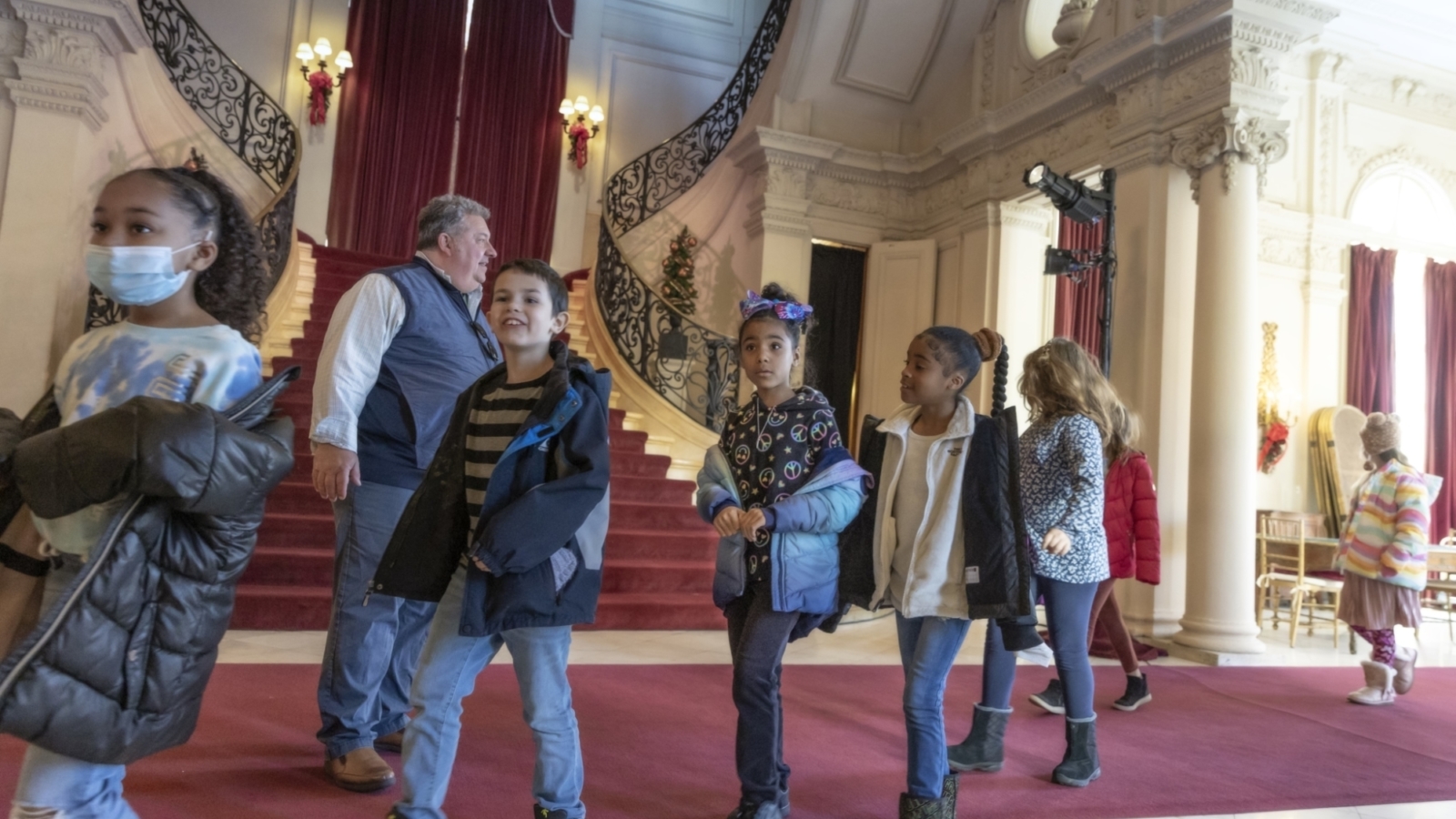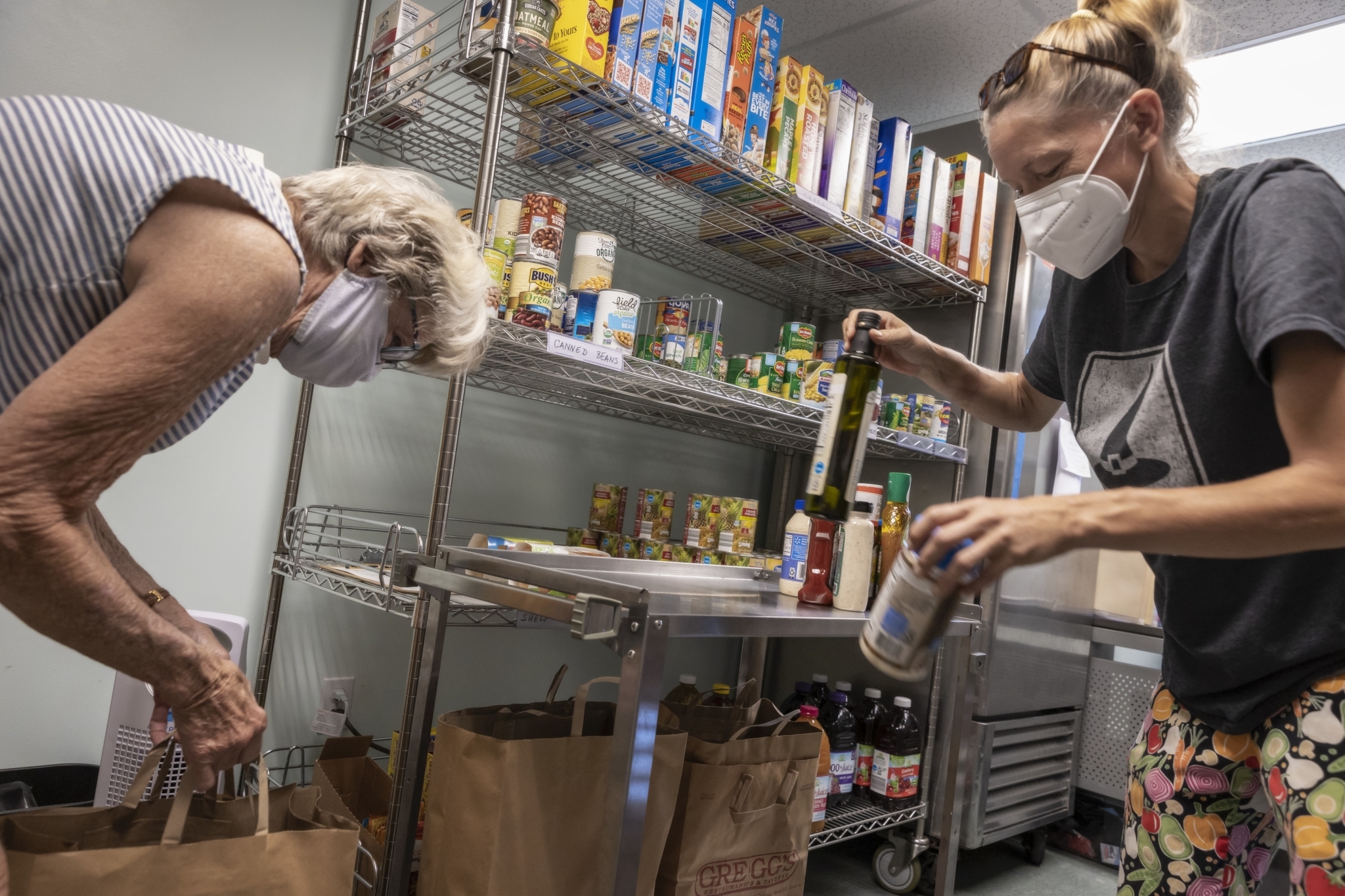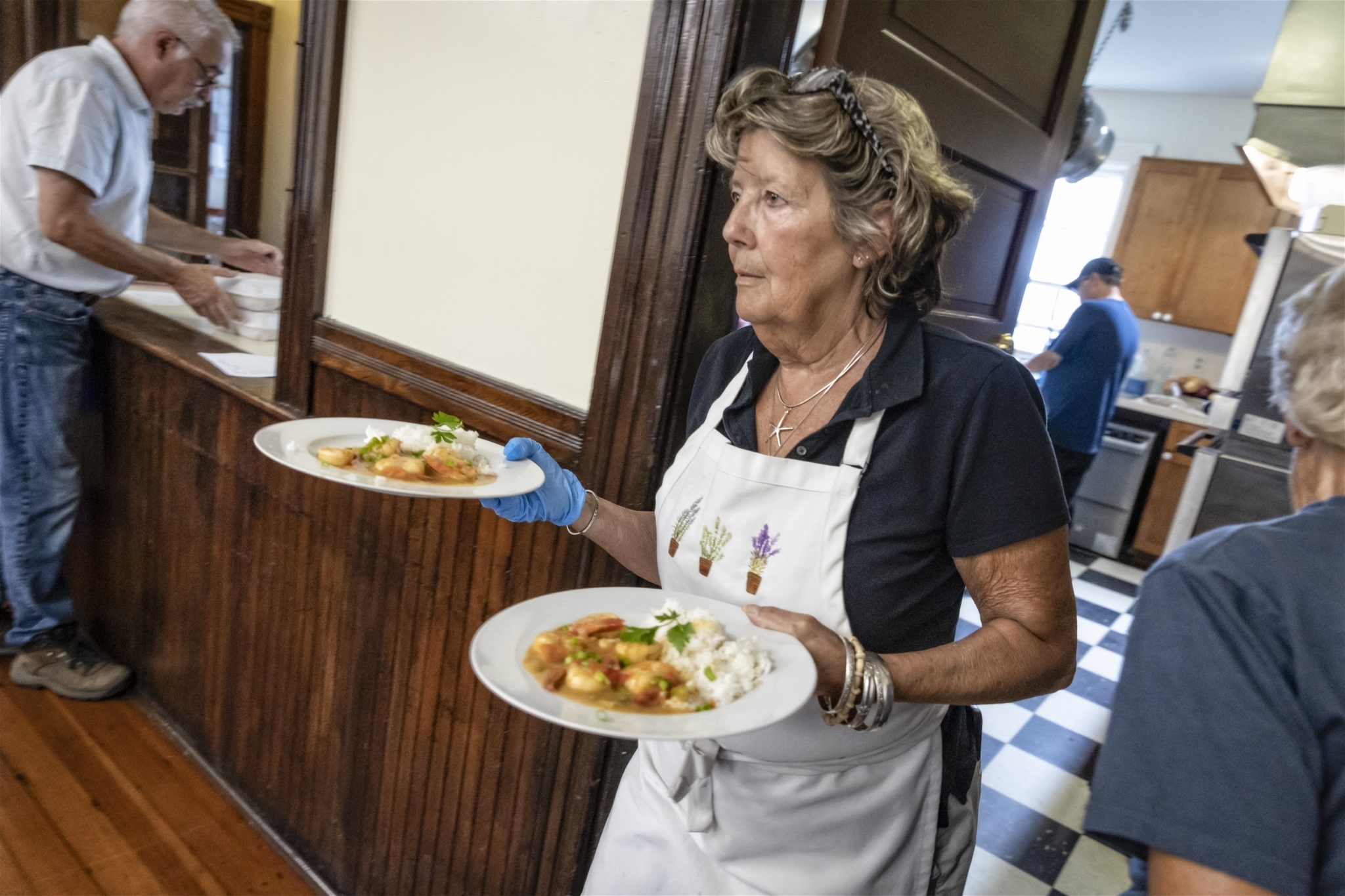
Grants & Scholarships
How big the little things are
In Newport County, one fund changes many aspects of the community
A safe place for families in need of shelter. Accessible education and career training. The promise of a warm meal.
These basic resources help keep vulnerable communities afloat. For over two decades, the Newport County Fund (NCF) has supported nonprofit organizations that work tirelessly to do just that. Serving the six areas that make up Newport County—Jamestown, Little Compton, Middletown, Newport, Portsmouth, and Tiverton—the Fund offers micro-grants of up to $10,000 where even a relatively small amount of money can be of significant assistance.
A group of Newport County residents work with the Foundation to recommend which organizations are most in need of support. Grants fund activities ranging from emergency housing and distance learning to job training and food pantries. Over the years, the Fund has invested nearly $5 million in programs and services for residents of Newport County.

The power of choice
“Hi Eli, looking for some food today?” A woman calls out as a young man walks through the door. Eli is a regular at the Jamestown Community Food Pantry where clients make appointments to ensure personal attention and support. Today, he’s technically a walk-in, but they won’t turn anyone away. He has no transportation so the Pantry delivers his groceries to him.
“Do you want cheese or cold cuts?
There’s yogurt.
And there are fresh herbs on the bottom there.
Here, have a few tomatoes and some garlic.”
This kind of dialogue is common at the Pantry, which operates under the “client choice” model. This model has been proven to reduce waste, as families are more likely to eat foods that they choose and know how to prepare—chicken, meats, fish, and hot dogs, as well as breads, dry and canned goods. Fresh fruits and vegetables come from local farms and gardens, including from the Jamestown Community Farm.
"Volunteers do the shopping, filling the shelves with what our community needs and wants."
“We don’t participate in the state food bank so it allows us to be more flexible. Volunteers do the shopping, filling the shelves with what our community needs and wants,” says Deb Nordstrom, co-manager and president of the board.
Elizabeth Bentley started using the pantry during the COVID-19 pandemic. “I had lost three jobs—I work in restaurants right on the island—during the pandemic, everything shut down and I just couldn’t keep up.” Elizabeth, 45, has three daughters, two—ages 9 and 17—still living at home. “The pantry is so well-stocked. I have a daughter who is lactose intolerant, and they even stock lactose-free products for us.”
The Jamestown Community Food Pantry serves individuals, families, the young, and the elderly throughout the Jamestown community. As an all-volunteer organization—including management, planning, fundraising, and outreach—all donations and contributions are dedicated to supporting the ongoing operations.

A performance to remember
The anticipation in the room is palpable as 140 third-graders from Pell Elementary School descend upon Rosecliff Mansion—excited to watch A Newport Nutcracker at Rosecliff. The second act unfolds in the grand ballroom where the students are transported to the Land of the Sweets.
This experience, and countless others like it, was commissioned by Island Moving Company’s (IMC) Dancing Through Boundaries program. The program includes Arts-First Matinees, often a student’s first experience with live dance performance. The organization received $10,000 from the Newport County Fund to support the initiative, a comprehensive educational program that serves 5,000 students annually across Newport County Schools.
The young audience is buzzing. They listen as a Rosecliff docent fills them in on the history of Rosecliff and its transformations during a succession of owners. Danielle Genest, artistic director of IMC, gives them a synopsis of the performance and tells them the appropriate etiquette for an audience. As it turns out, the students are a perfect audience—attentive, respectful, and appreciative of all the right moments.
“Our programs use dance as a multi-modal learning strategy,” says Peter Bramante, executive director of IMC. “They provide arts and cultural enrichment, alternative methods for improving students’ physical and emotional well-being, and access to dance training.”
Upon its conclusion, the entire cast takes the stage, introducing themselves, and taking questions. “Is it hard? Doesn’t it hurt to stand on your toes? How do you jump so high?” The energy continues as the students file reluctantly back to their buses. The IMC performance has clearly made an impression.

A bustling kitchen with community on the menu
The year was 1992 and it was all but decided: Little Compton’s 100-year-old Grange building would be demolished. That was until a group of volunteers decided to band together and successfully raise $350,000 to save the institution.
Five years later, Little Compton Community Center—the first and only in the community—opened to the public. The demand for programs and services quickly exceeded expectations, and within months, the organization had transformed from an empty building into a bustling center of activity.
In recent years, a big part of that activity has been the Center’s burgeoning Senior Lunch Program. While the longstanding program had always been popular, it began to grow exponentially with the onset of COVID-19—the number of meals went from 60 to 130 per week for home delivery or pick-up. When the pandemic restrictions were lifted, the center returned to also serving meals in their dining room, allowing their senior clients to socialize again. In 2022, the program received a $10,000 grant from the Newport County Fund.
"We are faced with some tough decisions, including how to fund an expansion of our kitchen facility."
The grant has helped make vast operational improvements, including hiring Chef Dave, who came with an extensive culinary resume and has taken the cuisine to a whole new level. On a recent visit to the Center, guests trickled in early to a pleasing aroma wafting through the dining room from the small kitchen. Chef Dave, assisted by kitchen volunteers, was preparing the Shrimp Étouffée with rice that would be served that day. For almost 25 years, the Center served meals prepared and delivered by Meals on Wheels, which typically arrived cold and soggy due to the location of the Center. Now the monthly menu includes entrees like Polish Winter Soup, Eggplant Parmesan, and Stuffed Sole.
Word is out in the community—the Center now serves 65-70 meals a day, roughly 200 per week. But as the program’s popularity continues to grow, the Center’s kitchen is struggling to keep up.
“We are faced with some tough decisions, including how to fund an expansion of our kitchen facility. Initially, we’re hoping to get an outdoor walk-in freezer/refrigerator. We currently don’t have the storage to get large deliveries at reduced prices,” says Samantha Snow, communications director.
With 31.5% of Little Compton’s population over age 65—the highest percentage of elderly in the state—the goal of the Senior Lunch Program is to turn no one away.



